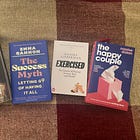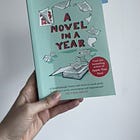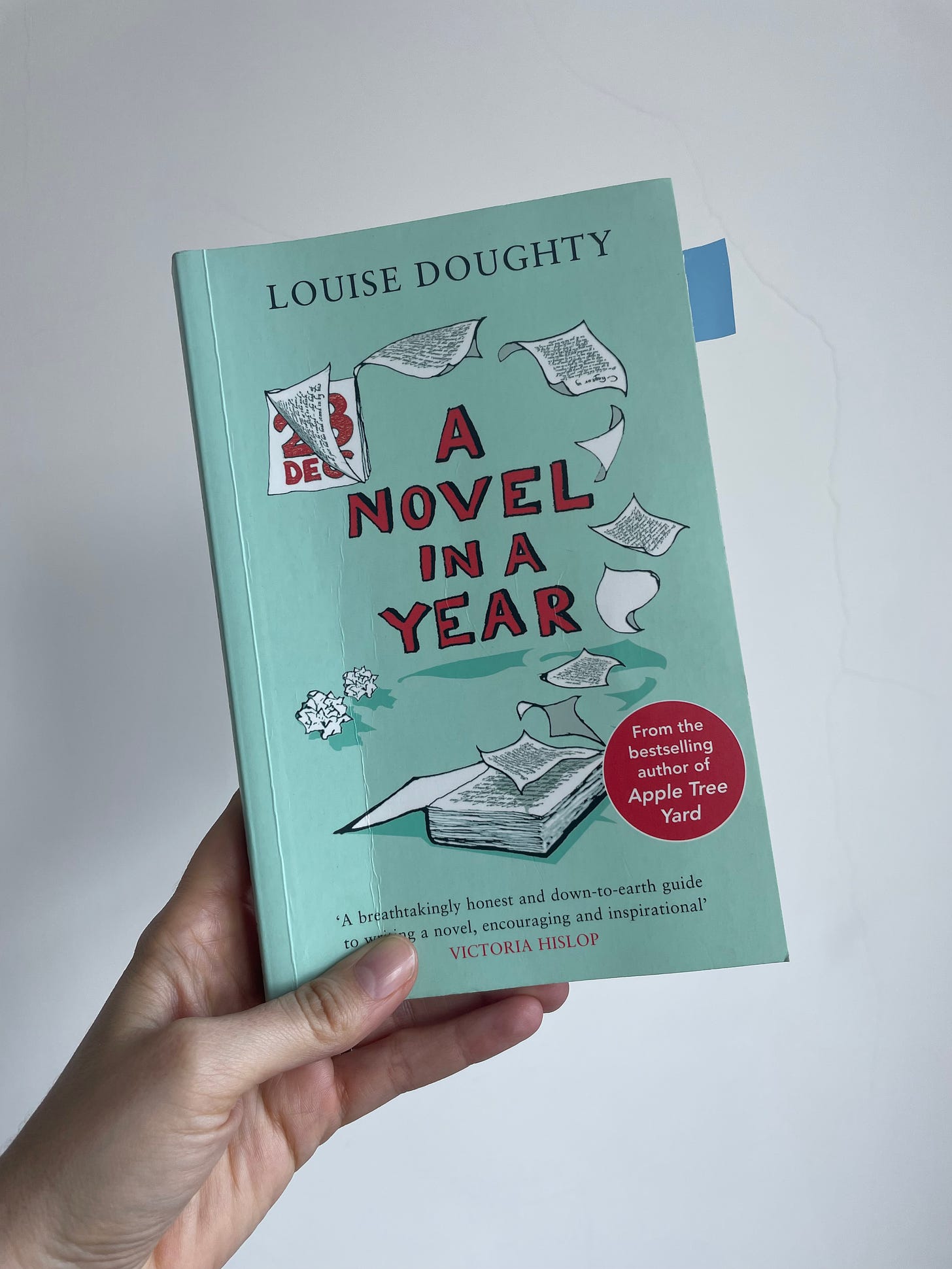Hello,
This is my third post in a year long project about my attempts to complete the exercises from Louise Doughty’s ‘A Novel in a Year’.
Each month, I will share a digest of the exercises and attach some details about how I found these. Interested in joining me with these? Please get in touch below and we can share ideas.
If you would like to see how it’s been going so far, here are links to #1&2:
And if you have absolutely zero interest in this monthly series, here is a selection of some of my other posts:
Week 9
This week’s task was to write a piece about being trapped.
Doughty writes:
Most of us have had accidents and most of us have got lost at sometime or another. Fewer of us have been physically trapped, as in locked in a cupboard or stuck in a lift […] but my guess is that most of you will think of times when you have felt trapped by simple circumstance, in an unhappy relationship or an unpleasant job.
Doughty recognises that it may take as much time to think about this task as it does to write it, so she recommends taking a walk to clear the head. So, I did just that. And it was while I was out walking where I kept returning to the first idea that had come to my mind. It was about a time when I genuinely did get stuck in a lift with my then boyfriend (now ex). This was such a memorable experience for several reasons, and as a result I also decided to write this in the third person. It enabled me to remove myself a little from some of the memories attached to it.
If you would like to read more, you can find a copy of what I wrote in a PDF at the end of this post.
Week 10
The focus of this week’s task was about gathering material.
At the beginning of this section, Doughty recounts a conversation she overheard between two strangers on a train. They were discussing writing, and specifically how one of them was struggling to think of a suitable plot for a novel that they had been working on for several years.
Even if you have an idea for a novel, that doesn’t mean you have a plot. A plot is not an idea, it is a whole mass of ideas, often in conflict with each other, which are expressed by a series of events.
Much about what Doughty shares here resonated with me.
I have started many a creative writing project where I felt, ‘This is it. This is the best idea that I’ve ever had!’ only to lose momentum after a few months and the document is left sitting in a folder on my laptop. Occasionally, I return to half-dead (zombie) projects; tinker around, change the perspective, even the tense, but the result is the same, where I am left with a mass of ideas, but no coherent thread to pull them together. In other words, I am short of a plot.
By sharing details of the exchange on the train, Doughty implies that only by gathering enough material can a writer develop a suitable plot that will keep a story moving. Doughty suggests that a budding writer can develop this area by writing as widely and diversely as possible. And the next few tasks she poses can help with this.
Week 11
Create a fictional character.
Doughty asks if you have a globe or atlas at home as this exercise requires you to travel. In my case, I googled a world map and started there.
For this week, Doughty asks you to pick a country and conduct some research on it. Your choice of country cannot be where you live or somewhere that you have visited. The key to this task is unfamiliarity.
Do a bit of basic research on that country: climate, history, names of towns and cities […] Read as much as you can and try to get as broad as possible picture of your chosen country.
Once you have completed this research, Doughty asks you to write a paragraph where you develop an entirely fictional character from the country that you selected.
After my initial hesitation with what was being asked here, I found that I enjoyed the research component of the task. And I was also reminded of the importance of this for when it comes to pretty any type of writing, perhaps besides journaling. I chose the country of Georgia and as this task was fairly short, I have included it here:
My name is Miriam, and I work as a servant to Queen Tamar like my mother before me. I never knew my father, my mother once said that he was a soldier who left Tbilisi shortly after my birth setting out under the cover of night for Armenia. And while I have no reason to doubt this version of events, I am unable to gather any more information about him or his whereabouts as my mother is now dead. So I guess he is too.
I need to thank Wikipedia for help with this one. There was a real Queen Tamar who ruled Georgia between 1184 - 1213.
Week 12
A review.
After completing a decent amount of research, I enjoyed last week’s exercise to create a fictional character and write a paragraph about them. What I found most interesting about this exercise was that I wanted to continue writing about the character. This is not to say that the paragraph was the beginnings of a book, or even a shades of a character that may make it into something, but I was drawn to using the research as a blue-print and following my instinct.
This week’s exercise has no specific task as such and is rather an opportunity to reflect on week 11, and as Doughty writes:
The foreign-character exercise was intended to send you off on a journey. For some of you, that journey will end when you have completed the paragraph I asked you write, but it’s equally possible that some of you will engage with that foreign character and enjoy writing in his or her voice enough to want to take it further.
Doughty finishes this section by encouraging us not to be afraid of foreignness, and of creating characters very different from ourselves.
… and at the end of the day, the common humanity that unites us all, our hopes and fears and dreams, can be applied in fiction to any character from any background.
Alright better get to work on week 13!
Sarah xx
And here’s a link to week 9’s exercise:









